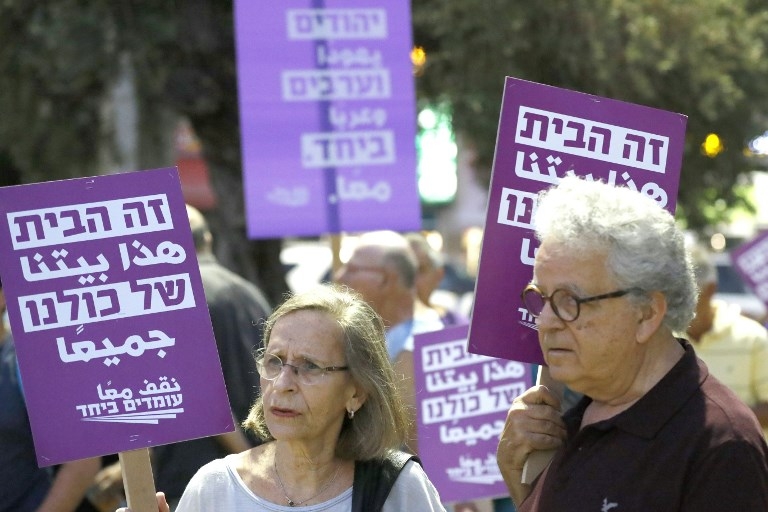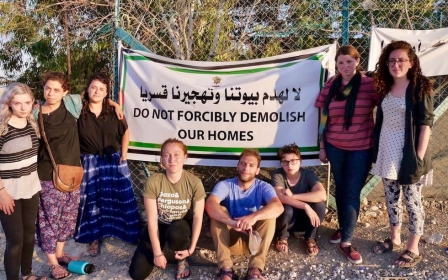Egypt says Israel's Jewish nation-state law undermines Middle East peace

Egypt on Saturday said a new Israeli law giving Jews the exclusive right to self-determination in the country undermined the chances for peace in the Middle East and the right of Palestinian refugees to return to their homes.
The law, which was passed on Thursday, drew a rebuke from the European Union and was denounced by the Palestinian Authority and Arab citizens of Israel as racist legislation.
The legislation is known as a basic law, similar to a constitutional amendment, and downgrades Arabic from an official language to having "special status," Haaretz reported.
Israel lacks a constitution and has long performed a delicate balancing act between its Jewish character and a commitment in its Declaration of Independence to provide "full and equal citizenship" to all citizens, Haaretz said. About 20 percent of Israeli citizens are Arab.
"The Arab Republic of Egypt announces ... its rejection of the law passed by the Israeli Knesset on the 'national state for the Jewish people' law ... for its ramifications that consecrate the concept of occupation and racial segregation," the Egyptian foreign ministry said in a statement.
"It undermines the chances for achieving peace and reaching a just and comprehensive solution for the Palestinian issue," it said.
It said the law would also have a potential impact on the right of Palestinians displaced from their homes in 1948, when Israel was founded, and their descendants, to return to their homes under United Nations resolutions.
Egypt in 1979 became the first Arab country to forge a peace treaty with Israel under the US-sponsored Camp David accord that provided for the Jewish state to withdraw from the Sinai Peninsula.
Still, relations between two countries have remained lukewarm, with Egypt demanding that Israel quit other lands it occupied in the 1967 Middle East war, including the Syrian Golan Heights, the West Bank and Gaza Strip and Arab East Jerusalem.
On Friday, Egypt's Al-Azhar Mosque, the most prestigious Sunni Muslim institution, denounced the Israeli law, calling it "a step that reflects repugnant racism".
New MEE newsletter: Jerusalem Dispatch
Sign up to get the latest insights and analysis on Israel-Palestine, alongside Turkey Unpacked and other MEE newsletters
Middle East Eye delivers independent and unrivalled coverage and analysis of the Middle East, North Africa and beyond. To learn more about republishing this content and the associated fees, please fill out this form. More about MEE can be found here.




